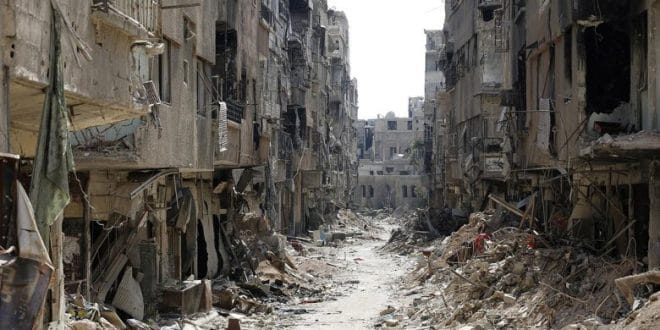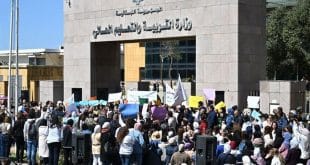مجلس الإنماء والإعمار في لبنان: تحديات الإصلاح والرقابة الدولية على مشاريع إعادة الإعمار
تحديات التعيينات وإعادة الإعمار في لبنان
يُعتبر إتمام التعيينات في مجلس الإنماء والإعمار من أبرز الشروط التي يضعها البنك الدولي للحصول على قرض بقيمة 250 مليون دولار مخصص لإعادة الإعمار في لبنان. هذا القرض يعد خطوة حاسمة في عملية إعادة بناء لبنان بعد الحرب الإسرائيلية الأخيرة، ولكن هناك تحديات كبيرة تواجه المجلس في سبيل تنفيذ هذه المهمة، أبرزها التصدي لمزاعم الفساد والهدر التي طالته على مر السنين.
إتمام التعيينات ومراقبة الأداء
تسعى الحكومة اللبنانية لإتمام التعيينات في المجلس بأسرع وقت، حيث تم الإعلان عن ملء خمسة مراكز رئيسية تتضمن الرئيس ونائب الرئيس وأعضاء آخرين. من المقرر أن يتم تعيين مجلس الإدارة قبل 20 نيسان الجاري، وهو الموعد المحدد للاجتماعات مع صندوق النقد الدولي في واشنطن. البنك الدولي وضع ضغوطًا على الحكومة اللبنانية لإنهاء التعيينات في حاكمية مصرف لبنان ومجلس الإنماء والإعمار، بالإضافة إلى إقرار قوانين مرتبطة بالمصارف ورفع السرية المصرفية قبل الذهاب إلى الاجتماعات.
الرقابة الدولية على مشاريع إعادة الإعمار
مع استمرار العمل على تنفيذ مشاريع إعادة الإعمار، ستكون الرقابة على إدارة المشاريع في المرحلة المقبلة من خلال مانحي القروض، بالإضافة إلى دور مفوض الحكومة في المجلس الذي سيأخذ طابعًا رقابيًا أساسياً. وحسب تقديرات البنك الدولي، احتياجات لبنان لإعادة الإعمار بعد الحرب الإسرائيلية تتجاوز 11 مليار دولار، منها مليار دولار مخصصة للبنية التحتية التي تعرضت لأضرار كبيرة.
تاريخ مجلس الإنماء والإعمار
مجلس الإنماء والإعمار الذي تأسس في نهاية عام 1976 بعد انتهاء الحرب الأهلية في لبنان كان من المفترض أن يتولى مسؤولية إعادة الإعمار والتنمية في البلاد. ولكنه، بحسب منتقدي المجلس، فشل في تحقيق تطلعات اللبنانيين وأصبح مرتبطًا بالفساد والهدر. وتقدر المشاريع التي أشرف عليها المجلس في العشرين عامًا الماضية بأكثر من 10 مليارات دولار، وتراوحت هذه المشاريع بين الطرق السريعة، الجسور، وإدارة النفايات.
الآراء المتباينة حول دور المجلس
محمد شمس الدين، الباحث في “الدولية للمعلومات”، يرى أن إلغاء المجلس قد يكون الحل الأمثل نظرًا لعدم فعاليته. ويعتبر أن تعيين المجلس لإدارة مشاريع إعادة الإعمار في الوقت الراهن يندرج ضمن محاولات المؤسسات الحكومية الكبرى لتولي المسؤوليات التي كانت موزعة بين الوزارات. شمس الدين أشار إلى أن المجلس أُعطي صلاحيات واسعة، إلا أنه فشل في إدارة الملفات بشكل صحيح، سواء من خلال تلزيم المشاريع بتكاليف خيالية أو تعيين استشاريين بأسعار مبالغ فيها.
الخلاصة
مجلس الإنماء والإعمار يقف أمام اختبار مصيري يتمثل في إصلاح الفساد، وإعادة بناء لبنان بشكل فعّال، مع ضمان الشفافية في الإنفاق، والمضي قدمًا في مشاريع إعادة الإعمار لتلبية احتياجات الشعب اللبناني.
Council for Development and Reconstruction in Lebanon: Internal Challenges and International Oversight of Reconstruction Projects
Challenges in Appointments and Reconstruction in Lebanon
Completing appointments at the Council for Development and Reconstruction is one of the key requirements set by the World Bank to secure a $250 million loan intended for Lebanon's reconstruction. This loan is a crucial step in rebuilding Lebanon following the recent Israeli war, but significant challenges lie ahead for the council, particularly addressing allegations of corruption and mismanagement that have plagued it over the years.
Completion of Appointments and Monitoring Performance
The Lebanese government is working to complete the appointments as quickly as possible, with the announcement of five key positions, including the president, vice president, and other members. The Board of Directors is expected to be appointed by April 20, the scheduled date for meetings with the International Monetary Fund in Washington. The World Bank has put pressure on the Lebanese government to finalize appointments at the Central Bank of Lebanon and the Council for Development and Reconstruction, alongside passing banking-related laws and lifting banking secrecy before attending meetings.
International Oversight on Reconstruction Projects
As the implementation of reconstruction projects continues, the oversight of project management in the coming phase will be conducted by loan donors, in addition to the role of the government commissioner in the council, which will take on a primary supervisory function. According to the World Bank, Lebanon's reconstruction needs following the Israeli war are estimated at over $11 billion, including $1 billion designated for severely damaged infrastructure.
The History of the Council for Development and Reconstruction
Founded in late 1976 after the Lebanese Civil War, the Council for Development and Reconstruction was originally tasked with overseeing reconstruction and development in the country. However, critics argue that the council failed to meet expectations, becoming associated with corruption and wastefulness. The council has overseen projects worth more than $10 billion in the past two decades, covering highways, bridges, and waste management.
Diverging Opinions on the Council's Role
Mohammad Shamseddine, a researcher at the “International Information Center,” suggests that dismantling the council may be the best solution due to its ineffectiveness. He believes that the decision to have the council manage reconstruction projects currently reflects the larger trend of government institutions taking on responsibilities once divided among ministries. Shamseddine noted that while the council was granted broad powers, it failed to manage projects properly, including assigning overpriced consultancy services and contracting projects at inflated costs.
Conclusion
The Council for Development and Reconstruction now faces a critical test: to address corruption, rebuild Lebanon efficiently, ensure transparency in spending, and move forward with reconstruction projects to meet the needs of the Lebanese people.
Translated by economyscopes team
المصدر: الشرق الأوسط
 سكوبات عالمية إقتصادية – EconomyScopes إجعل موقعنا خيارك ومصدرك الأنسب للأخبار الإقتصادية المحلية والعربية والعالمية على أنواعها بالإضافة الى نشر مجموعة لا بأس بها من فرص العمل في لبنان والشرق الأوسط والعالم
سكوبات عالمية إقتصادية – EconomyScopes إجعل موقعنا خيارك ومصدرك الأنسب للأخبار الإقتصادية المحلية والعربية والعالمية على أنواعها بالإضافة الى نشر مجموعة لا بأس بها من فرص العمل في لبنان والشرق الأوسط والعالم




